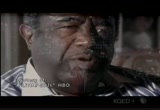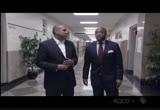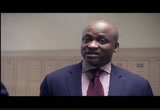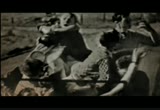tv Tavis Smiley PBS September 7, 2011 12:00am-12:30am PDT
12:00 am
from los angeles, i am tavis smiley. first up tonight, a conversation with the man who prosecuted one of the most painful crimes in all of american history, the bombing of the 16th street baptist church in birmingham back in 1963. doug jones finally brought justice in this case nearly 40 years later in his role as attorney in alabama. jones now represents one of the girl's father is. the man has been a lifelong pillar in the community in birmingham but is now serving time in a federal prison. doug jones on the curious details of the case and what president obama has been asked to do on behalf of mr. mcnair. also tonight, we will have more on our program "tavis smiley
12:01 am
reports." i hope you join us on most of these pbs stations on education in america. it is called "too important to fail." it focuses specifically on the plight of american boys and how we can all make the system better. we are glad to have douglas jones and a preview of our prime-time special "too important to fail." >> every community has a martin luther king boulevard. it is not just a street, a boulevard, but a place in the community. make every day better. >> nationwide insurance supports tavis smiley. with every question and every answer, nationwide is proud to join tavis in helping literacy and removing obstacles to economic and power meant one at a time. nationwide is on your side. >> and by contributions to your pbs station by viewers like you.
12:02 am
thank you. [captioning made possible by kcet public television] captioned by the national captioning institute --www.ncicap.org-- tavis: doug jones is a former u.s. attorney who helped bring justice in one of the country's most heinous crimes, the 1962 bombing at a church in birmingham, which, of course, took the lives of four precious girls. doug jones now represents the father of one of those girls. mcnair is now serving a five- year prison sentence on robbery charges. doug jones has asked president obama to intervene on his behalf. doug, good to have you on the program. thanks for your time, sir. >> thanks for having me pick it is great to be with you. tavis: mr. minner.
12:03 am
his daughter happen to be the youngest of the girls killed that day. denise mcnair was only 11. her father goes on after having to endure all of that pain to go on and become a great leader in the community, and how now he is sitting behind prison bars is a curious case. we will get to that in a second. let's go back to the prosecuting the case, 2001, to be specific. it did bring some justice in the case of those four girls killed in that. tell us about the case. have you brought this back. how you got to know the minner family and the prosecuting of that case. >> tavis, it was just an incredible thing to work with those trying to right a wrong. you do not get too many opportunities to do that in your life. we had that opportunity here.
12:04 am
this occurred and allow us to open it up, taking a look at the case. the fbi began the investigation. the two investigators did a phenomenal job, and it took awhile. we had a number of issues we had to overcome in birmingham. people were dying. people were aged. but at the end of the day, it took move in the case over to the state. i was u.s. attorney, but my boss, janet reno, allowed this case to be processed in state court, under which there are no statute of limitations. tom blanton was convicted, as was another. we took a lot of the evidence and repackage it for a new jury, a new day in birmingham, young and old, who were going to be sitting in judgment of these men. and bobby frank sherry. he had made a lot of admissions. it was relentless.
12:05 am
-- bobby fragged -- ferank cherr -- frank cherry. tavis: is justice denied? >> i think the original city and was something more along that there is injustice in a delay, and there is a little bit of a difference. i think there is some injustice in a delay, but at the end of the day, it was not an obvious case. there was justice. there was final justice. tommy blanton is still in prison. cherry died in prison. quite frankly, that injustice were to to our side. we could have never gotten a conviction on the evidence. people change. things change. birmingham changed for the much better.
12:06 am
justice was finally able to be achieved, and at the end of the day, it is not denied in this case. justice delayed did not mean justice denied for these families and the people of birmingham. tavis: i think they would consider me a friend. i consider them friends. i have known chris and his wife for years. i think the best work ever done that spike did was the documentary on those four girls. i assume when you're prosecuting mr. cherry and mr. blanton, you got to know them. tell me about the start of your relationship with the mcnair family. >> it goes back long before this case, back to the 1970's when i was in college, and chris was a member of the alabama legislature. he was actually my state
12:07 am
representative when i was going up and through law school. i worked with him on a number of campaigns over the years, the county commission, for his run for congress, for his run for the u.s. senate at one time. if they are just incredible people, wonderful people. that relationship obviously took a whole different term when i became the district attorney. this case had already opened up, and i took control of it to try to bring this case to justice. kind of people that have an abiding faith in the system, that sooner or later justice would prevail. it took a long time, but all of the families were the same way. i got to know them on a very, very personal level over the course of the case, as well as i did with other families. they were there every day at the trial. they never spoke out unless they thought was appropriate. he never used this case, i think, to his political advantage. they were just there, lending
12:08 am
their support, and it was very meaningful having them sit there in the front row every day and both of the cases involving blanton and cherry. tavis: we are getting to why it is and how it is that chris mcnair, an icon in this community, is sitting behind bars in prison. one final precursor, given what he and toured with his daughter being killed, he is still in alabama -- given what he adored -- endured. he is respected enough in alabama and birmingham specifically to be elected to office time and time again. tell me about his personal journey and how he navigated that given what had happened to his daughter in this very community. >> tavis, that is probably the most interesting and most tragic part of the story. instead of leaving, instead of running away from alabama, he
12:09 am
was from arkansas originally, he could have left the state easily after what happened to denise. denise was his only child. he turned all of that anger to do something positive. this was in 1963. this was just months after the children's marches. instead of turning and running and just being an angry man, chris turned his attention to try to heal the wounds and make the city a better city, make the city a better community. he reached out, not only as a leader of the black community, he reached out to the white community, business leaders, and was one of the rare individuals in the 1960's who could bridge that gap without alienating anyone. he had this persona, a presence about him that was open, friendly, transparent, and he was able to bridge that gap when no one else was able to. what he did was to look at the business leaders. he ran for the legislature. he was tapped in the early
12:10 am
1970's, just a decade after all of the problems in birmingham, to make it an all-american city, and that got his attention to the city. once he became a member of the legislature, once he became a member of the legislation, he continued to do that. he wore to with all segments. he truly was a representative not only of the black community in birmingham but for all of birmingham and all of jefferson county, and it was just his persona. you just have to know chris, and you know him well. he has got that booming voice, even at age 85. he has that strong voice. he is the kind of person that people flock to whenever he speaks. tavis: now, to get to your point, at 85 years of age, how does a civil-rights icon such as chris mcnair find himself in prison, which if you are a math major is until he is 90 years old? how did this happen?
12:11 am
>> tavis, this is a story of triumph after tragedy that ends up in tragedy again. as a county commissioner, chris was seen to have taken a lot of what the government termed as bribes, what the jury found, quite frankly, to be bribes. what he was trying to do was renovate a studio, a very historic spot here in birmingham. his photography studio has been in the same spot for 40, 50 years. renovate that to me as a legacy for himself, for his family, for denise, a memorial cloth and in doing so, unfortunately, there were a lot of contractors doing business with the county, of which he was a commissioner on the sewer system. they did a lot of work personally for the studio, he contributed a lot of work. there was also some cash that was given to help pay for these renovations. it was several hundred thousand dollars. i truly believe, in one sense,
12:12 am
chris did not realize or did not think that this was a crime being these were his friends. he was also one of four or five votes on the county commission, but at the end of the day, the rule of law prevails, and what he did was wrong. he was found guilty of a jury, again black and white, young and old, and he pled guilty to another camp and received a five-year sentence. the judge could have done more, could have done less, but at the end of the day, he had five years, just recently started serving that five-year sentence because of the appeals that occurred over the years. tavis: what is his condition right now 85 years of age, and where is he being housed a >> chris will turn 86 in november of this year. his health is not good. after the time he was convicted, really between the time he was sentenced and the time he served, he had a minor stroke.
12:13 am
he had gone to a family farm in arkansas with a cousin, ended up having a stroke and ended up stranded on the side of the road in oklahoma before family have the police involved and found him and got him back to birmingham. he is doing ok, but he suffers from diabetes. he has cardiovascular problems. he suffers from sleep apnea. he has all sorts of disorders that, frankly, are not uncommon for a 86-year-old man. overall, he is doing ok and is stable. currently at marion, ill., at a federal prison camp, although i got were just this morning that he is being transferred even further away from calm to a facility in rochester, minnesota. that is kind of a good news/bad news for us. the facility, as i understand, in minnesota is more of an medical facility that can take care of his needs more as they arise.
12:14 am
but this puts him more away from his wife, also in hurt -- her eighties. his emotional standpoint, and there are issues involving his cognitive ability, it probably will not be a good thing that he is moving to minnesota, that much further from home. tavis: i am paraphrasing, the jury really had no choice based upon the facts that were presented to them. never mind their respect and their regard for mr. mcnair of. they had to find him guilty, given what the letter of the law says. when, if, and how mr. minner ever came to terms with his own guilt, and how you, as a lawyer, represented him in the courtroom, -- when, if, and how mr. mcnair ever came to terms? >> it was one of those
12:15 am
situations, tavis, where it was a crime of intent. defense lawyers try cases of intent. when there were so other -- many other mitigating factors that we were able to show in court, if the relationship between chris and the contractors that went back years and years, even with one of the contractors. two of them got convicted. very close relationships. which also said something about chris mcnair as a man. all of these contractors were white, and he had developed these relationships over many years. we were also able to show that this was not going into anything that was personal. he was not living a lavish lifestyle. this was going into a business that would ultimately be for the community, for this memorial to his daughter, had a place for the community to come, have functions, so there was not as much personal benefit, but i also knew at the end of the day, chris mcnair's heart was right.
12:16 am
i said, "talk to be ahead of time." we could have done this differently. we could have formed a charitable foundation of some time, have all of these foundations to do something for the community, which is what i hope the studio will end up being anyway. he has come to grips with what he did was seen by the community as corrupt. he has come to the fact that his legacy has been tainted, but, you know, at the end of the day, when it came time for him to serve, i drove him up to a federal prison. he got out of the car, and he ambled into the federal prison to take his punishment. we are just hoping now that he has been convicted that he has started to serve some time that somebody above everyone's pay grade has been involved in this can look at this and say, "you know what? the rule of law prevails. it has prevailed, and he was
12:17 am
convicted, and yet, we are a merciful society, and this man deserves a little mercy." not because his daughter was killed in a heinous crime but because of what went on after. to try to heal the racial ones that have so divided the country over the years. -- to try to heal the wounds. tavis: how often has maxine, mrs. mcnair, been able to see him since he has been incarcerated? >> his brother has been up there a couple of times. i talked to his brother this morning. he has been there a couple of times. his two daughters have only been up there once. i am not sure what the next time will be now that he has moved to minnesota. i have not even had a chance to get up there. i talked to him by phone the other day. hotter it is to give family and friends. for anyone who has ever had clients who have gone to prison,
12:18 am
a federal or state prison, he they will tell you one of the most critical factors to the well-being is the visitation, the contract to their family and friends, not just the cards and the letters they get but the physical contact, being able to sit down and see somebody and talk to them, one-to-one, face- to-face. it is so important, and that is just going to be far and between now. tavis: why not incarcerate him in a federal prison in alabama? to put it another way, is there not a federal prison in alabama? >> one in montgomery and one in talladega. i do not know what the formula was used by the bureau of prisons to designate him first to illinois. i understand that as long as he is within 500 miles, they have met their guidelines. i talked the other day and put in a medical transfer for him very shortly after he got in illinois. and i want to make sure, tavis, i say, they have been great to deal with and work with.
12:19 am
they have treated him fairly. they have treated him very nice. i think the concern, there are not many federal medical facilities that are really right there that do focus on medical issues within the federal system, and, remember, rochester is where the mayo clinic is, i think, so i think out of a true concern for his mental and physical well-being put him in a very good medical facility. tavis: there is, of course, the court of law, and there is the court of public opinion. the jury had the case. i know this is an impossible question. how does chris mcnair -- how is he regarded now in birmingham, alabama? >> tavis, i think it is a mixed bag, candidly. i think people at the very core have been just a very, very disappointed in chris. many will believe he is getting exactly what he deserved, but there are also so many more that while they understand and know
12:20 am
the jury's verdict, absolutely that he deserves some mercy in this case, and that at age 85, and 86 years old, he does not need to and his final days in a federal prison. -- does not need to end his final days in a federal prison. tavis: you have asked the obama administration not for a pardon but for clemency. i had to ask what that was. what the latter and not the former? >> or not wipe out the conviction altogether? -- why not wipe out the conviction altogether? clemency is saying that the rule of law has prevailed, but at the end of the day, there are other mitigating factors that would mitigate in favor of this man being released and not serving his days out in a federal prison, a federal prison. clemency would really just allow him to get out of prison, to commute his sentence to time
12:21 am
served, and allow him to get back out with his family. that is all we have asked for. that was chris' request. he did not want to do or indicate anything to this community that he has not accepted responsibility for what he did. others sat said, look at the whole history. do not look just at the convention. look at his entire history, especially from 1963 on. and see that this man deserves the mercy. he for gave everyone after the death of his daughter, and it is not too much to ask that we may be forgive him for his transgressions, as well. tavis: do you know where your clemency petition is right now? >> the justice department, they have also been great with to work with. i believe they have completed their work. it is probably at the white house, where it may or may not be for a long time. the minute the white house wants, even under president bush, it went back to the
12:22 am
justice department, so i think it is really in the hands of white house counsel and the obama administration to take a look at this thing, to weigh the merits and see how this fits with and what they see as balancing the rule of law with mercy, and we always need to temper it that way. tavis: and doug jones is an icon. if you go to the birmingham civil rights museum, there is a permanent memorial to him as he constructed this case to put mr. cherry and mr. blanton , and pause for the bombing in 1963 and now tragically represents one of the girls and fathers, chris mcmahon. thank you for what you are doing. -- one of the girls' father is, chris mcnair. -- fathers.
12:23 am
coming up, a preview of "too big to fail -- too important to fail." in the next edition, we will explore the crisis in education, and in particular, the plight of african-american boys. in some states, less than half of all teenaged boys graduate from high school, a staggering statistic that impacts all americans. here now is a quick preview of "too important to fail, saving american boys." >> 14 major relationships with our young people. >> principal william -- tavis: principal william wade. where black boys are concerned, what are on the signs for you as a leader, an educator, and that teacher xyz is not ready to deal with this particular contingent of >> first of all, african-
12:24 am
american males are very intimidating to some people. because of the baggage that they bring through the front door that causes them to act out in classes when they are falling behind academically. the easiest thing to do is to run a young man out of your classroom or out of your school. the true gist of our work is how can we work with the seal -- this young person to improve learning? some teachers hold grudges with these young men because of the baggage that they brought in. they are victims, victims of society, and you have to recognize that as an educator and remove those obstacles and build trust, offer your assistance, and at the same time educate them. tavis: i have never heard of students, black males in particular, as victims. what do you mean by that? >> they are victims in many areas, the high-crime rate, things that have a witness. fathers being incarcerated.
12:25 am
things that they should not be exposed to. things that they had no control over. they did not write it this way. tavis: join us for our look at education in america. "too important to fail," from the corporation for public broadcasting. you can also visit our website at pbs.org. that is our show this time. i will see you next time on pbs. los angeles, thanks for watching, and as always, keep the faith. >> for more information on this show, visit tavis smiley at pbs.org. tavis: hi, i am tavis smiley. glen campbell. next time, there. >> every community has a martin
12:26 am
luther king boulevard. it is the cornerstone we all know. it is not just district, a boulevard, but a place where wal-mart stands together with your community to make everything better. >> nationwide insurance support the tavis smiley. with every question and every answer, nationwide insurance is proud to join tavis him in helping to improve literacy and to remove obstacles to economic and power but one obstacle at a time. nationwide is on your side. >> and by contributions to your pbs station by viewers like you. thank you. >>
143 Views
Uploaded by TV Archive on

 Live Music Archive
Live Music Archive Librivox Free Audio
Librivox Free Audio Metropolitan Museum
Metropolitan Museum Cleveland Museum of Art
Cleveland Museum of Art Internet Arcade
Internet Arcade Console Living Room
Console Living Room Books to Borrow
Books to Borrow Open Library
Open Library TV News
TV News Understanding 9/11
Understanding 9/11































